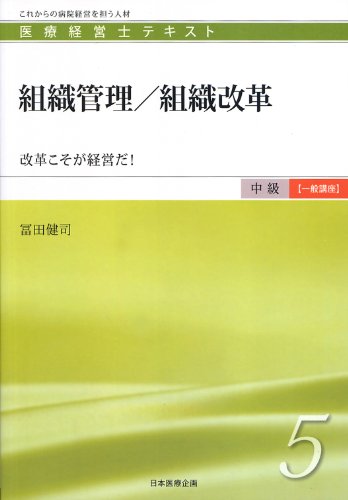3 0 0 0 OA 地域医療機関とのネットワーク構築
- 著者
- 井上 淳子 冨田 健司
- 出版者
- 公益財団法人 医療科学研究所
- 雑誌
- 医療と社会 (ISSN:09169202)
- 巻号頁・発行日
- vol.11, no.3, pp.55-67, 2002-02-22 (Released:2012-11-27)
- 参考文献数
- 16
- 被引用文献数
- 1
近年,医療機関を取り巻く環境は確実に厳しさを増している。各医療機関とも生き残りを賭けた熾烈な競争を強いられ,大きな変革を迫られている。ビジネスの世界において他社と協調的な関係を結ぶ傾向は,病診連携,病病連携,医療と福祉の連携など医療業界においてもみられるようになった。機能分化や医療資源の効率的活用が叫ばれる今日,医療機関どうしの連携はますます重要性を増している。本稿では,亀田総合病院の地域医療ネットワーク事業を事例にとり,成功要因の分析を行った。同院の成功は,情報共有を通じた地域医療機関との戦略的提携,顧客である地域医療機関との良好な関係性構築,徹底した患者(顧客)志向によって説明できる。同院は「企業」戦略ではなく,ネットワーク組織全体がもっ人的資源や,物的資源,情報の利用により,組織全体の利益・便益が向上することを目的とした「組織」戦略をとっている点が特徴的である。
1 0 0 0 OA 製薬企業における新薬開発を目的とした戦略的提携
- 著者
- 冨田 健司
- 出版者
- 日本マーケティング学会
- 雑誌
- マーケティングジャーナル (ISSN:03897265)
- 巻号頁・発行日
- vol.26, no.3, pp.31-43, 2007-01-19 (Released:2021-07-30)
- 参考文献数
- 25
- 被引用文献数
- 1
1 0 0 0 IR 欧州急進右派ポピュリズムと「一国民主義」 : N.ファラージ時代のUKIPに注目して
- 著者
- 冨田 健司
- 出版者
- 九州大学大学院地球社会統合科学府
- 雑誌
- 地球社会統合科学研究 = Integrated sciences for global society studies
- 巻号頁・発行日
- no.12, pp.27-43, 2020-02
Since the beginning of the 2010s, we have seen a global rise of radical-right populism. In Europe, populists are trying to depict themselves as defenders of innocent people, especially those "who are left behind", against "corrupt political establishments", and provide "combination of sovereign nationstate identity and protectionist (or social-democratic model) economy" alternative against globalisation and European integration. In the UK, the United Kingdom Independence Party (UKIP) under Nigel Farage's leadership (2006-2009/2010-2016), had evolved into a party with this model from single-issue and Thatcherite-like party, and led public opinion into decision of" Brexit", Britain's leave from EU, in the June 2016 referendum. In this paper, I will try to challenge traditional conflicting explanations on UKIP as "Thatcherite" or "welfare-state chauvinism", and the umbrella term of "populism" when we are explaining this kind of phenomenon. In Section 3, I analyse UKIP's constitution, manifestos and some of Farage's remarks, including social media. In Section 4, by comparing this with UKIP's manifesto before Farage, can show how UKIP's nature was changed with analysis on surrounding domestic and European political factors. Section 5 will be about David Miller's liberal-nationalist concepts and Shoji's European Integration trilemma which itself was modelled after Dani Rodrik's globalisation paradox, and how UKIP under Farage could fit the "Democracy in One Country" model. Section 6, is about how Farage's model had attracted "people left behind" with supplementation of previous Takahashi's research on the rise of UKIP from political-sociological perspective. In the concluding part, Section 7, I am trying to provide some implications for how this model affected the decision of the Brexit referendum as well as its potential global effects.
1 0 0 0 組織管理/組織改革 : 改革こそが経営だ!
1 0 0 0 「構造改革」下における地方企業の経営戦略
今回の研究を通じて明らかになったことは下記の諸点である。1.円高不況期をはじめ過去に研究対象とされてきた時期と今次のいわゆる「構造改革」期では、地方企業をとりまく国内外の諸条件、とりわけ中国をはじめとする東南アジア諸国との関係において大きな相違が認められ、従来の戦略では適応できない部分が大きい。2.全体として地方企業では消極的ながらも構造改革を肯定的に受け止めている傾向がみられる。一方で、国や地方自治体が推進している様々な産業振興政策については、業種によって違いが見られるが、費用対効果の点などで概ね否定的な評価が見られる。財政政策的支援よりも規制緩和、減税など自立的な競争環境の整備を求める意見が強い。3.経営課題としては、(1)販売単価の下落、(2)販売量の減少、(3)納期の短縮、(4)適切な人材、労働力の不足などが挙げられる。4.基本的な戦略としては、コスト優位よりも品質や特徴あるサービスなどで差別化することを指向している。しかし、戦略とIT利用の関係を見ると、業務効率化のレベルにとどまる傾向が見られる。電子商取引への戦略的対応、IT戦略を支える地方ソフトウェア業の高度化も課題として指摘される。5.地方であっても地域の特徴を活かした研究開発型産業集積やベンチャー企業創出の可能性が見られる。その際、一定の産業集積やクラスター形成を前提とした産学(官)協同型の研究開発戦略が効果的である。6.変化に対応した戦略的提携の重要性が以前にも増して認識されてきている。とりわけ、企業の水平的連携戦略、研究開発戦略における連携などが重要である。7.イタリア、韓国などの国々でも構造改革と地方企業の関係は共通した課題が見られ諸外国の事例を研究することは競争力のある地方の産業集積の形成の点から有効である。8.今後、NPOなど非営利の組織体と地方経済・企業との関係分析も重要になってきている。

